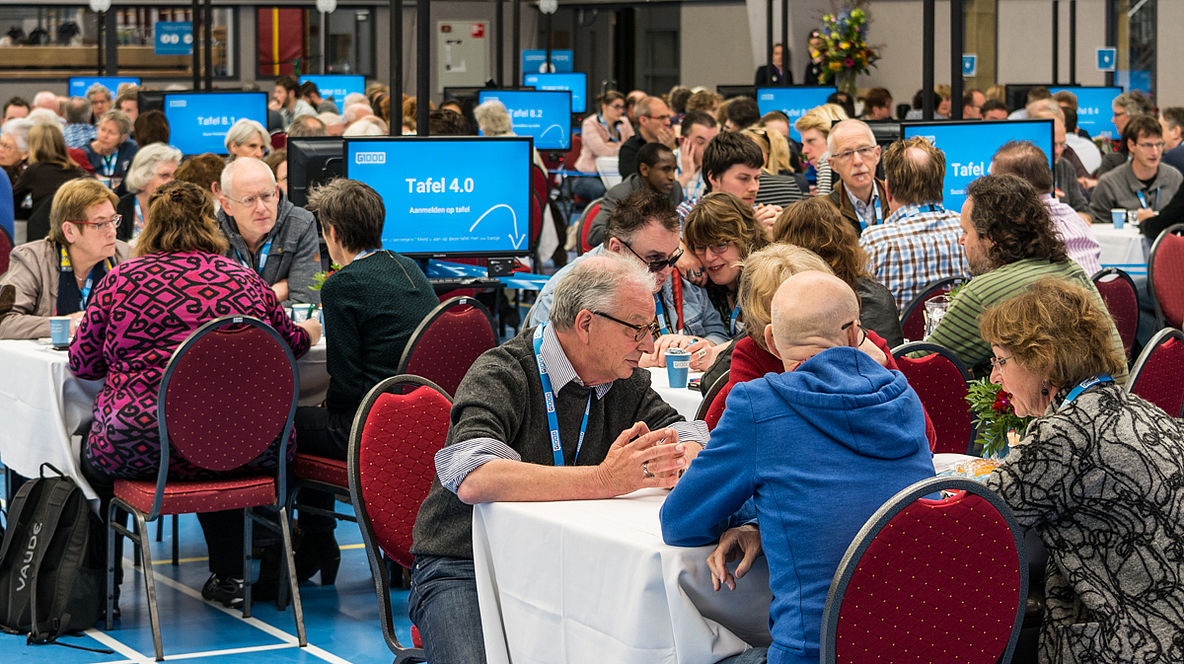Three citizens' assemblies for Amersfoort

On 30 January 2024, the council of the Dutch city of Amersfoort decided by a large majority to hold three citizens' assemblies. These are intended as test balloons with a view to the introduction of a permanent citizens' assembly. With the mini-publics, the city council wants to strengthen local democracy and improve political decision-making.
The upcoming citizens' assemblies will consist of 54 members, who will be randomly selected from the entire city population. All residents aged 16 and over are in the lottery pot. Those randomly selected for the citizens' assemblies are to formulate recommendations on upcoming local political decisions. The city is providing a total of 200,000 euros to organise the three mini-publics.
Residents can submit suggestions for topics
A steering group consisting of two councillors, two members of the college of mayors and department heads and two members of the public will be able to make suggestions to the city council regarding the topic and the respective issue. Residents also have the right to make proposals. The City Council makes the final decision on which topics are submitted to the citizens' assembly.
The steering group will also monitor the citizens' assemblies and evaluate the quality of the process. Based on the evaluation results, the steering group will be able to adapt the procedure for the following citizens' assembly. An independent evaluation committee will also be formed for this purpose. After the first year, the members of the steering group will be supplemented by participants from previous citizens' assemblies.
Action plan 2020 adopted
On 20 December 2022, the City Council adopted an action plan for the implementation of a pilot project on citizens' assemblies. The aim is to ensure the sustainable use of this democratic instrument in the city. The initiative "Team Burgerberaad" provided the impetus in the second-largest city in the Dutch province of Utrecht with a population of 160,747.
"With the approval of this proposal by the council, one of the council's tasks (representing the residents) on a specific topic will be transferred to the randomly selected citizens' assembly, so to speak," reads the municipal council's resolution. The municipal council should adopt the citizens' assembly proposals unless a majority of the council has strong reasons for not doing so. This requires further consideration of the role of the council and the relationship between the city council and the citizens' assembly, particularly with regard to the final vote in the city council. However, the City Council remains ultimately responsible.
Topics should appeal to many residents
The choice of topic and question is seen as important for the success of the experiment. It should definitely be a topic that appeals to broad sections of Amersfoort society and is also important for politics and administration. It could be helpful for the city council to select topics that it finds complicated or that it cannot immediately solve itself.
The citizens' assembly may not decide on
- Decisions by the City Council on an objection or on a legal dispute
- Matters such as appointments, dismissals, suspensions and monetary benefits for office holders and their relatives
- Adoption of the city's budget and accounts
- Determination of municipal taxes and levies.
- Matters which, in the opinion of the City Council, have their predominant basis in a previous decision
- Issues where the council has no room for manoeuvre for decisions of a political nature
- The adoption of a land use plan
- Decisions on the establishment of, accession to and withdrawal from a joint agreement
"Experience shows that a citizens' assembly is not in competition with the municipal council, but complements it," says the City Council. From a social point of view, it is desirable that residents see participation in a citizens' assembly as a normal and natural part of being a citizen.
Learn more: Gelote Burgerraad